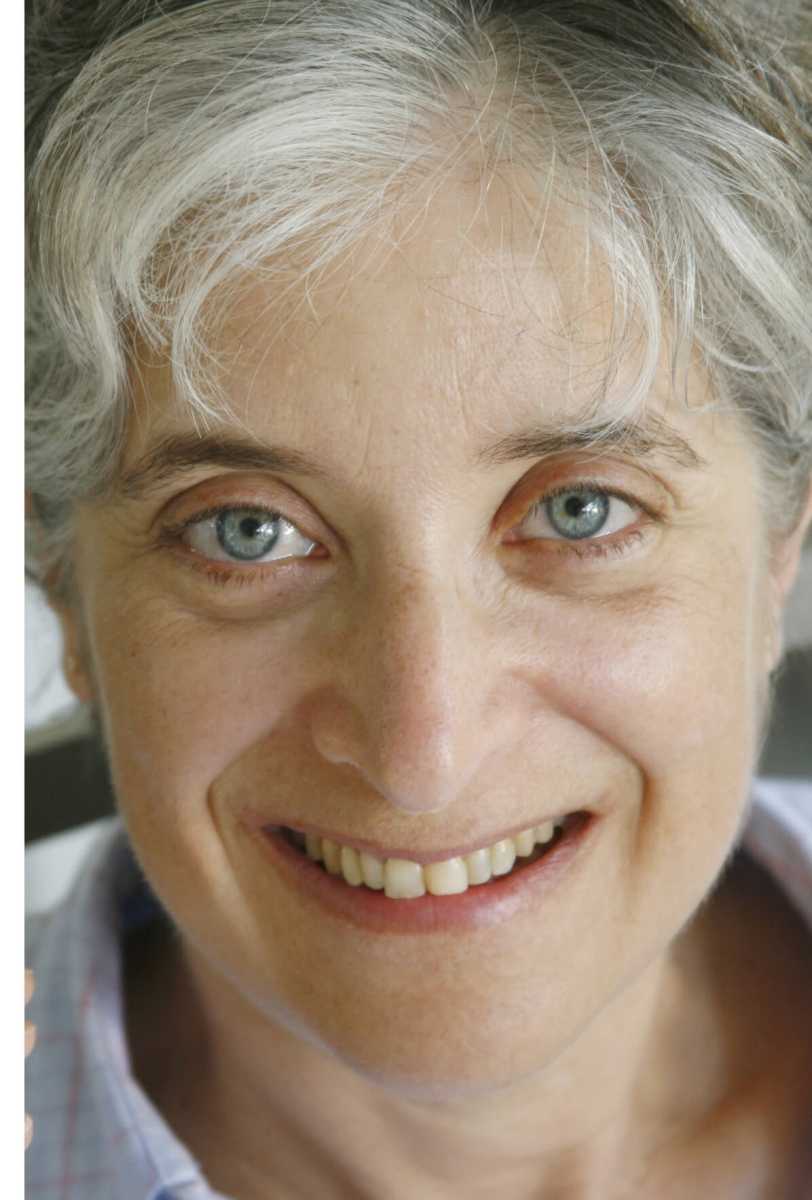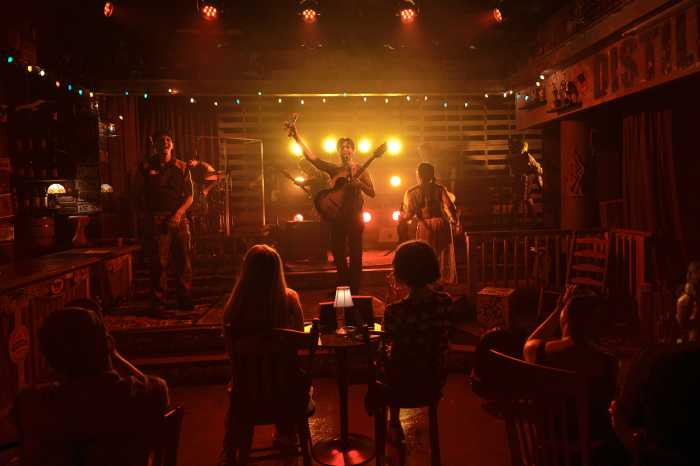Leah Lax, born a secular leftist, joined the Hasidic Jewish community and endured an arranged marriage; she mothered seven children before having an abortion and being shunned. Eventually she found her truth as an out lesbian. Her 2015 memoir, “Uncovered: How I Left Hasidic Life and Finally Came Home,” prompted Lori Laitman — among America’s leading contemporary classical vocal music composers — to propose turning Lax’s deeply felt, wrenching, but eventually uplifting material into a chamber opera. Working with an all-female production team, Beth Greenberg directed City Lyric Opera’s NYC première that staged November 16–19. Lax spoke with GCN via e-mail.
What has it been like shaping your very personal story turned into an opera?
Let’s just say I leaned hard on Lori Laitman’s courage. The experience of years as a closeted Hasidic wife and mother living a life of secrets doesn’t translate easily to singing out your story on a stage. Neither does a secret abortion, or clandestine lesbian affair. Music is pure emotion; I feel more exposed in opera than I did writing my memoir. In the end, “Uncovered” dares a trifecta of taboos: fundamentalism’s stomp on women (in a Hasidic setting!), lesbian passion, and abortion. We present these “issues” as individual and personal: They’re alive. I still never know when a moment on stage will choke me up. I’m grateful I can be anonymous in a dark hall.
Was it easier or harder to shape the material than in your previous opera and choral works?
Definitely harder. Previous experience had given me a more-objective approach that was a kind of scaffolding I could hold onto. But whatever I write has to feel personal at some level while I’m writing it, or it will fall flat. I check my gut — that’s my barometer. Coming out and getting a life taught me that.
What was the development process and March’s world première production in Utah like?
We opened at conservative — Mormon — Utah State University because of their musical theatre director, Dallas Heaton, who found parallels in “Uncovered” with the lives of her students and with her own. Right away, four student cast members quit, citing personal conflict with the material. After that, staff met regularly with all new cast members and coached them through the experience. To sing well, a singer needs to find their common humanity with any role. I think that would be a good life lesson for our world. After the production, I brought home a sack of amazing letters from the cast. One, who was aligned with the church, wrote that the experience playing a lesbian had changed her. “In the beginning, I didn’t know what to think, but in the end, I loved ‘Leah’ and I wanted what was best for her.” Isn’t that what we all want — to be an individual equally worthy of love and not an “issue” or matter of belief?
Did the context of Mormonism give resonance to the narrative “Uncovered” relates?
Oh, yes. Opening in Utah made it clear from the outset how universal “Uncovered” is. The experience will remain one of my most satisfying as an artist. [And] a whole group of members of Utah’s oldest synagogue drove in for a performance. They were Jewish people raised in Mormon society who understood the overlap that you refer to.
Any chance that people from your former Hasidic community and family will see “Uncovered”?
I’ve got contacts in the ex-Hasidic community and they’re excited. Some are still in, or partially in, their communities. For those who still wear Hasidic garb, coming to a performance will be daring; Hasidic men are not allowed to listen to a woman sing; and besides, my work is taboo. We’ll do talkbacks from the stage Thursday and Saturday night and I’ll take questions. It would be great if any of them speak up.
Have you had any response to the book, private or otherwise, from unexpected quarters?
Everyone has felt “covered” at some time. People of all genders and religious backgrounds have reached out to say how the memoir moved them and talk about stuck places in their lives. Then [the non-profit organization] Ideas Beyond Borders translated [the book] into Arabic. They made a trailer that put covered Hasidic women next to women in burkas. Within weeks it had been viewed a quarter of a million times…and my Facebook page was hacked by Muslem militants. It’s been a ride.
What do you and Lori Laitman hope for as a path going forward for this opera in terms of possible venues. Might it find resonance in Israel or Antwerp, for example?
Our hope is for “Uncovered” to go anywhere people deserve to live their truth and find real love, which is everywhere. It blows me away to what extent Lori’s music allows the voices, the people, the yearning, to soar. “Uncovered,” and Lori’s work in general, belong in the standard repertoire. I’d also like to point to Beth Greenberg’s incredibly talented and professional directing. She’s the one making “Uncovered” come alive.


































